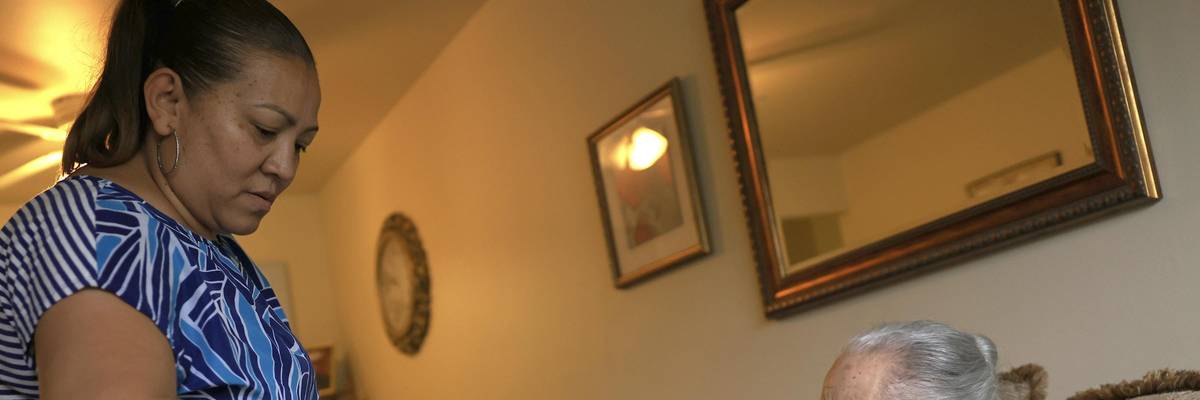Between daycare closures, school closures, and nursing homes becoming hotbeds for the deadly virus, the Covid-19 pandemic turned millions of people into caregivers overnight.
Women are particularly affected by these challenges, since they shoulder a disproportionate share of caregiving duties. Nearly three million women left the workforce entirely between March 2020 and February of this year.
These additional caregiving responsibilities are a key factor holding many Americans back from re-entering the workforce. While Republicans try to argue that overly generous unemployment benefits are causing staffing shortages in some pockets of the economy, the real obstacles are the lack of available and affordable child and elder care, combined with the low wages for many of the available jobs.
Women are particularly affected by these challenges, since they shoulder a disproportionate share of caregiving duties. Nearly three million women left the workforce entirely between March 2020 and February of this year.
The pandemic has only exacerbated the pre-existing inequalities in our care system. Executives of for-profit senior homes pocket obscenely large paychecks--even during the Covid crisis. The CEO of Welltower, the nation's largest owner of nursing homes and other senior housing, made more than $14 million in 2020. Meanwhile, ordinary families struggle to afford care for their loved ones--even as caregivers earn poverty wages.
What will it take to build a more equitable and sustainable support system for both family and professional caregivers?
"You have to really love what you do because your pay doesn't reflect it, the respect doesn't reflect it, and we aren't protected," said Benjamin during a webinar hosted by The 19th, a non-profit newsroom reporting at the intersection of gender, politics, and policy. "So that makes us feel like we aren't essential. And seeing as we are the ones that are supposed to be taking care of people, why is it that we are the least cared about?"
Benjamin works as a home health aide in Illinois and is a member of the SEIU Healthcare union. Like many of her counterparts, she's a Black woman. Among all U.S. home care workers, over 90 percent are women, more than half are women of color, and 31 percent are immigrants.
And despite the fact that the care economy is projected to be one of the fastest-growing industries, with an estimated 1.6 million jobs related to adult care alone expected to be added by 2024, home care workers currently earn on average just under $17,000 a year and one in six live below the poverty line.

Home care worker Adarra Benjamin speaks on a panel about building a sustainable care economy. (Credit: The 19th News)
A recent study by the City University of New York and the Association on Aging in New York found that low wages are a major factor in the shortage of home care workers. Some 17 percent of home care positions in the state are currently unfilled.
President Biden's American Jobs Plan would go a long way towards addressing these problems. It proposes a historic $400 billion investment to expand access to affordable home or community-based care, allowing aging and disabled Americans to stay in their homes rather than having to move into expensive and potentially dangerous for-profit nursing homes.
Biden's infrastructure plan would also allow home care workers the ability to bargain collectively to improve wages and benefits.
And while some lawmakers disagree with including these caregiving investments in an infrastructure package, those who perform this labor day in and day out are as essential to our society and economy as roads and bridges.
"We are all going to get older," Benjamin said. "We're all going to need a care worker. So understanding and taking the opportunity to invest in something that we're all going to need is the biggest step."





